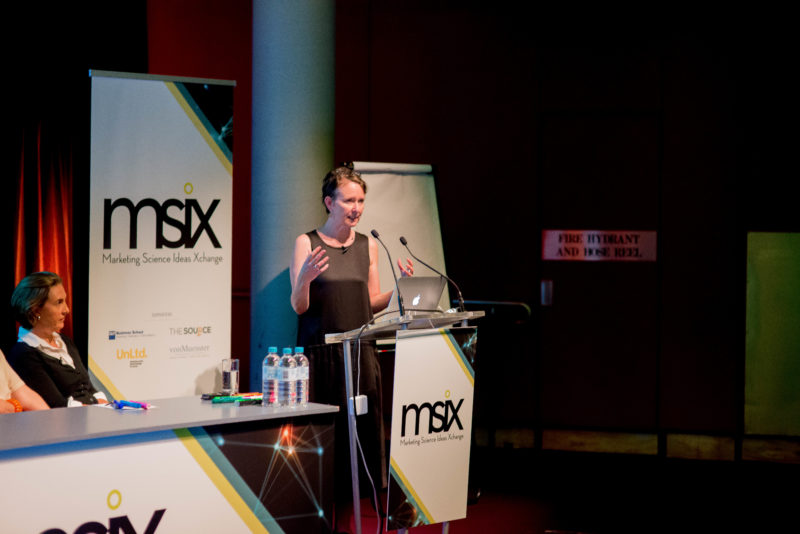More men likely to seek help after seeing ABC’s ‘Man Up’ series, research finds
A study looking at how Australian men deal with depression has found that men who had watched ABC series Man Up were more likely to seek help when depressed than men who had not seen the series.

Professor Jane Pirkis reporting the study’s findings at Mumbrella’s MSIX conference
Results revealed 84% of men in the first group believed the ABC documentary series had “triggered a change for the better.”
The study was a joint project between ABC, Heiress Films and the University of Melbourne and involved showing ABC series Man Up to one group of 354 men while the second control group was shown another documentary without masculine themes.

